From the Chicago Reader (August 9, 2002). — J.R.

Blood Work
** (Worth seeing)
Directed by Clint Eastwood
Written by Brian Helgeland
With Eastwood, Wanda De Jesus, Jeff Daniels, Anjelica Huston, Tina Lifford, Igor Jijikine, Alix Koromzay, Dylan Walsh, and Paul Rodriguez.
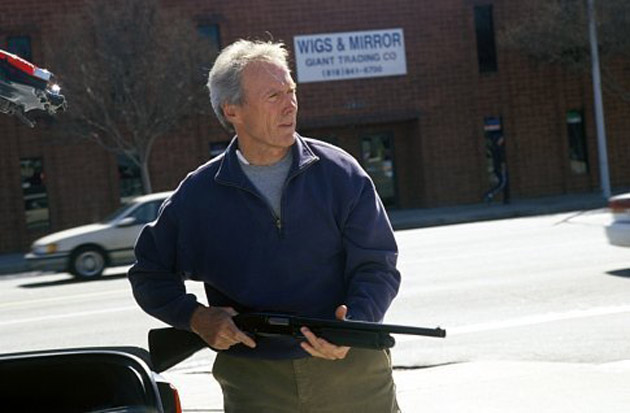
Clint Eastwood’s latest slugfest, Blood Work, is ultimately just another Dirty Harry opus. And by now Harry has become boring, not because Eastwood keeps trying to redefine the character the public tends to remember him for, but because he doesn’t try to redefine the punk villains who keep Harry busy and dirty.
In Blood Work — not technically but generically and existentially a Dirty Harry adventure — the villain is a standard-issue serial killer. It’s a truism that there are more serial killers in movies than there could possibly be in life, and what keeps them mythic seems to have less to do with the world we live in than with the sadistic and infantile ways we like to think about that world. I have come to associate pleasure in cinema with the absence of serial killers, and the pleasure I associate with Blood Work includes everything that doesn’t relate to the silly one lodged near its center. Read more
Written in April 2011 for the Cinema Guild DVD of In the City of Sylvia and Some Photos in the City of Sylvia. Alas, most of the illustrations used here come from the former of these, the second to have been made. — J.R.
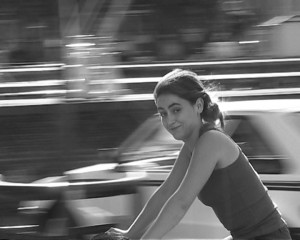

José Luis Guerín’s Some Photos in the City of Sylvia has been described, by myself and others, as a silent, black and white “study” (or filmed “treatment,”or “scenario”) in 2007 that formed the basis for In the City of Sylvia, a color and sound “remake”of the following year. Whether or not this might be technically accurate in terms of causality and financing, it now strikes me as an inadequate way of summarizing the fascinating relation between these two works. I even think it’s an error to view these two films as two versions of the same story — a mistake I made myself when I reviewed them together back in 2008 — because assuming this overlooks too many other things.
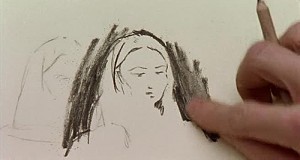
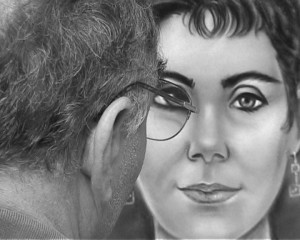
Just as there are viewers who prefer Chantal Akerman’s Golden Eighties (1983), her feature-length “preview” to her 1986 musical Window Shopping, and others who prefer Jean-Luc Godard’s 54-minute Scenario du Film “Passion” (1982) to his 88-minute Passion (made the same year), it’s entirely possible to prefer Guerín’s 67-minute “sketch” to his 84-minute feature. Read more
From the Chicago Reader (August 31, 1990). — J. R.
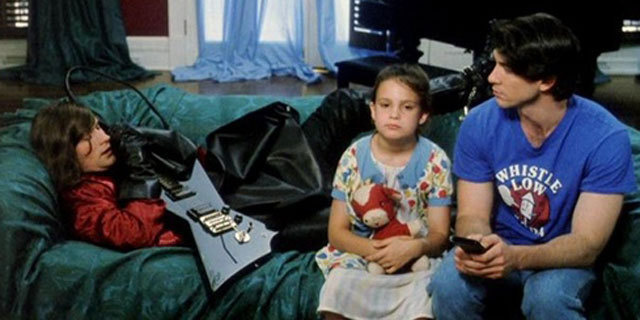
TWISTER
*** (A must-see)
Directed and written by Michael Almereyda
With Suzy Amis, Dylan McDermott, Crispin Glover, Harry Dean Stanton, Lindsay Christman, Charlaine Woodard, Lois Chiles, and Jenny Wright.
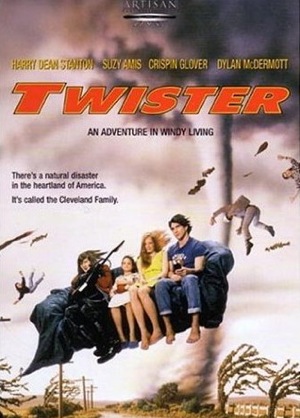
“Happy families are all alike; every unhappy family is unhappy in its own way.” The second part of the opening sentence of Tolstoy’s Anna Karenina applies pretty well to the eccentric Kansas family in Michael Almereyda’s oddball comedy Twister, but in a way that’s only half the story. Not only is the family as a whole unhappy in its own particular way, most of its members are out of whack with themselves, each other, and everybody else too.
The father is Eugene Cleveland (Harry Dean Stanton), a distracted, long-divorced retired multimillionaire who made his fortune in soda pop and miniature-golf courses. His main distraction is courting Virginia (Lois Chiles), the born-again hostess of “Wonderbox,” a local Sunday-morning TV kiddie show that teaches toddlers about “the weather, animals, and God.” Maureen, or Mo (Suzy Amis), his 24-year-old chain-smoking alcoholic daughter, is a crabby recluse who hasn’t quite grown up or broken away from home; she occasionally camps out in the backyard of the family mansion, which borders a golf course. Read more








